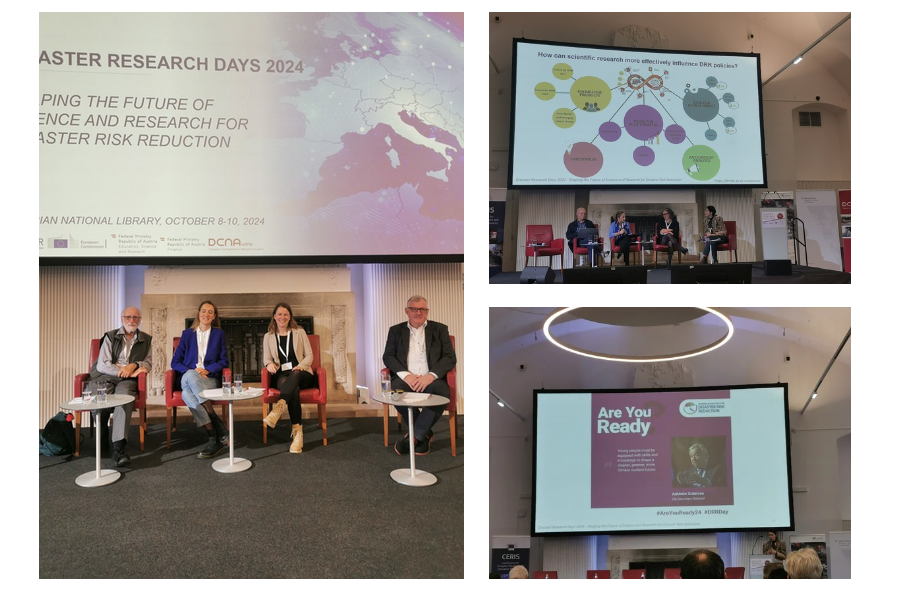The final day of the DRD24 event at the Austrian National Library brought together experts and policymakers to discuss critical issues in disaster DRR. The sessions highlighted the importance of public policy, international cooperation, and the integration of scientific research into legislative frameworks.
The day began with opening remarks from Andreas Schaffhauser of Geosphere Austria and Chiara Menchise from the United Nations Office for Disaster Risk Reduction (UNDRR). They emphasized the importance of national DRR platforms in advancing science and research.
Chiara Menchise delivered a keynote address, focusing on empowering the next generation for a resilient future in disaster risk reduction. She stressed the need for innovative approaches and active engagement of young people in DRR initiatives.
The last day had six panels looking for example into higher education as a catalyst for disaster preparedness or a joint roadmap for actions by CERIS and E-STAG.
The third panel of the day was dedicated to building resilience through collaborative learning and action. Moderated by Chiara Menchise, this session highlighted the MCR2030 model. Speakers from the University of Huddersfield, Save the Children Italy, and Milan Municipality shared insights on fostering resilience through community engagement and collaborative learning.
The afternoon started with a panel on “Agents of Change: Public Policy and Crises,” moderated by Jörgen Sparf from Mid Sweden University and NTNU Social Research. Speakers Evangelia Petridou and Lina Ringberg emphasized the role of public policy in managing crises and fostering resilience at the local level.
Following a brief break, the focus shifted to global initiatives with the panel “COP29 and UNDRR’s Regional Platform for DRR.” This session was designed by DKKV. Moderated by Ronja Winkhardt-Enz, the session featured insights from Elisa Calliari, Peter B. Meyer, and DKKV board member Reimund Schwarze from the Helmholtz-Centre for Environmental Research on the latest developments in climate change adaptation and disaster risk management.
The final panel, “From Lab to Legislation: Enhancing Science-Policy Collaboration in Disaster Risk Reduction,” underscored the necessity of bridging the gap between scientific research and policy implementation. Moderated by Chiara Menchise from UNDRR, the panel included contributions from Christina Corbane, Urbano Fra Paleo, and Delia Arnold Arias, who discussed strategies for integrating scientific findings into effective DRR policies.
The event concluded with a wrap-up and closing remarks by Eva Schulev-Steindl from the University of Natural Resources and Life Sciences, Vienna, summarizing the key takeaways and future directions for DRR research and policy.
DRD24 successfully fostered dialogue and collaboration among stakeholders, setting the stage for continued advancements in disaster resilience.


